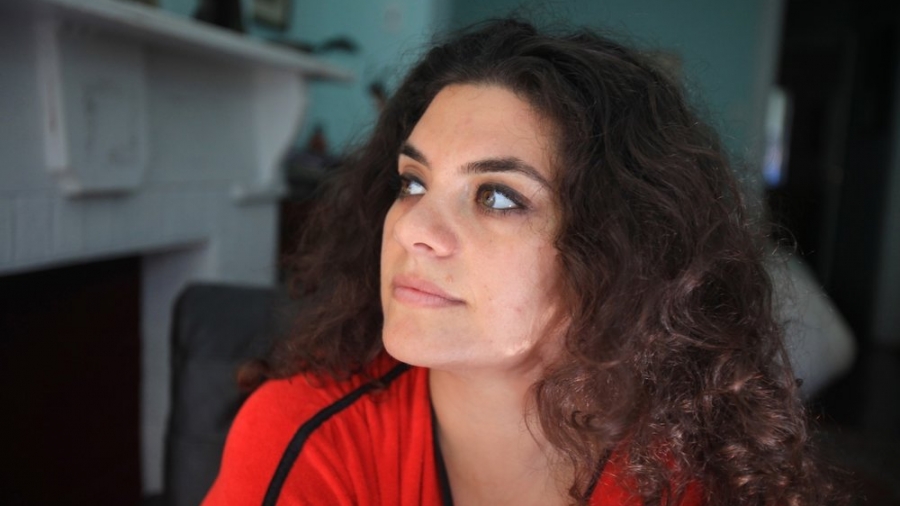Suha Araj is a Palestinian-American independent filmmaker. Her recent film Rosa, which tells the story of a young woman who begins a side business shipping undocumented bodies to their home countries for burial, was the 2018 pitch winner of the Through Her Lens Tribeca Channel Women’s Filmmaker Program. Rosa has since been submitted and accepted to various film festivals, including this year’s Blackstar Film Festival; it is scheduled to show at the DC Palestinian Film & Arts Festival on Sunday, October 4, 2020.
Film Fest Magazine writer Precious Ringor recently chatted with Suha Araj about her film Rosa, growing up Palestinian in Ohio and the importance of Middle Eastern and immigrant representation in film and media.
What sparked your passion for making films?
I never really grew up thinking I could be a filmmaker. It just wasn’t in the realm of possibility and I always had a job. But then I would do different forms of art on the side – I would do some installation work, theatre, and I was curating for the Arab Film Festival in San Francisco. Just watching the media that was out there representing Arabs, I didn’t feel like it was representative at all. I felt like it was false, it really didn’t have to do with my experiences. So, my real motivation to come into film was to reflect the experiences that I was not seeing on screen.
You mentioned dissimilarity between your personal experiences and Arab representation in media/film, what was it like growing up?
I grew up in Ohio with a Palestinian Family. I didn’t have a big community, but I had a lot of family nearby. I grew up with a very Midwest lifestyle that was isolated from the culture. But we would visit family all over the US and Europe. The diaspora were everywhere. Maybe because I grew up in Ohio, I wanted to see the world. I’ve slowed down in the last few years with traveling, but I just think it’s the best way to learn about the world and people. It always brings a fresh perspective and I really enjoy it.
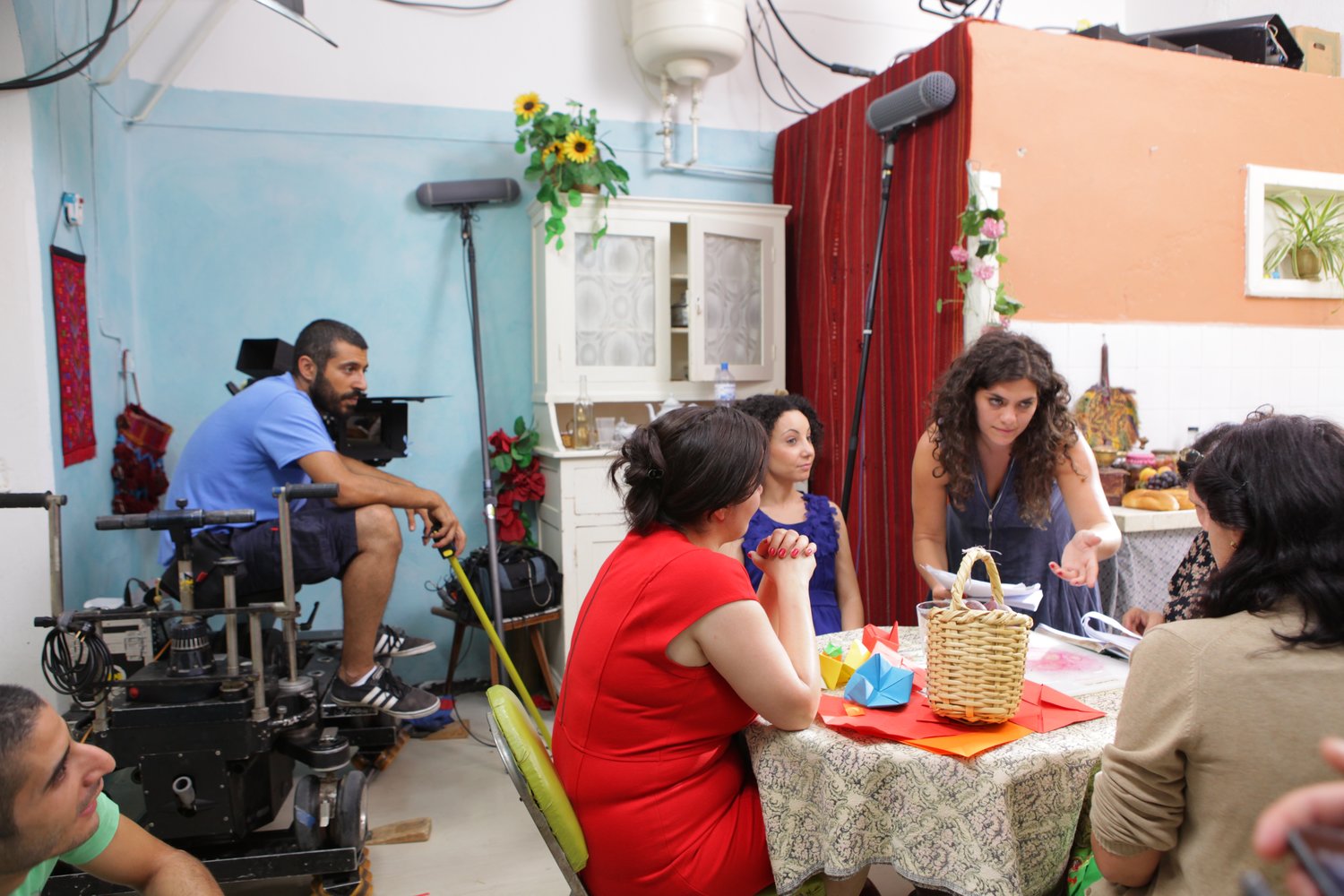
Behind-the-scenes footage from the film The Cup Reader.
Is that where you got your inspiration for making films about immigrants, from traveling?
No. It doesn’t really come from traveling, but from the lived experiences of me and my family. People who have had to leave their homes and start their lives over, it isn’t always someone’s first option. I mean every once in a while, it is, but it’s never someone’s plan A to leave home. That experience of living and growing in a world that’s not familiar is the place I find a lot of creative inspiration. I generally try to find the humor in it as well. Rosa, my most recent film is not funny, but I generally look for humor in those experiences.
And what was the inspiration behind Rosa?
I mentioned I was doing different art projects in San Francisco. One project I did was an installation for a Día de Muertos exhibit called “Buried in Michigan”. It was about both my grandfathers who were buried in Michigan when they died. I never felt like that was the proper final resting place for them. It was an unsettling feeling for me. I felt like there was an incompleteness and I don’t know if they felt that way, but it was a feeling I wanted to explore. For the installation, I set up an altar with items that made me think of them and I asked people to sign a guestbook [saying] where they’d like to be buried, not knowing myself where [I’d like to be buried]; not having an answer to that. I think that experience is maybe true for a lot of people.
So, the idea behind Rosa really started with the question, “What if you wanted to be buried at home but you couldn’t?”
It went from a real emotion, thought, and experience to a fictional world created in film.
In filming Rosa, did you have a particular feeling you wanted to evoke from the audience?
For the character Ali (who’s trying to get his father home), I really wanted to evoke a sense of isolation. He’s here by himself and feels the responsibility of fulfilling his father’s wish to go home. If he was at home, the community would be surrounding him and that’s not Ali’s reality in Queens.
For Rosa, it’s her world of the flower shop and sort of living a double life, hiding from her aunt what she’s doing and wanting to help people. It takes a big heart to do what she does and be able to pull it off. Something very important to me was the connection between the different immigrant families and different immigrants helping each other, a real understanding between people who want to get something done.
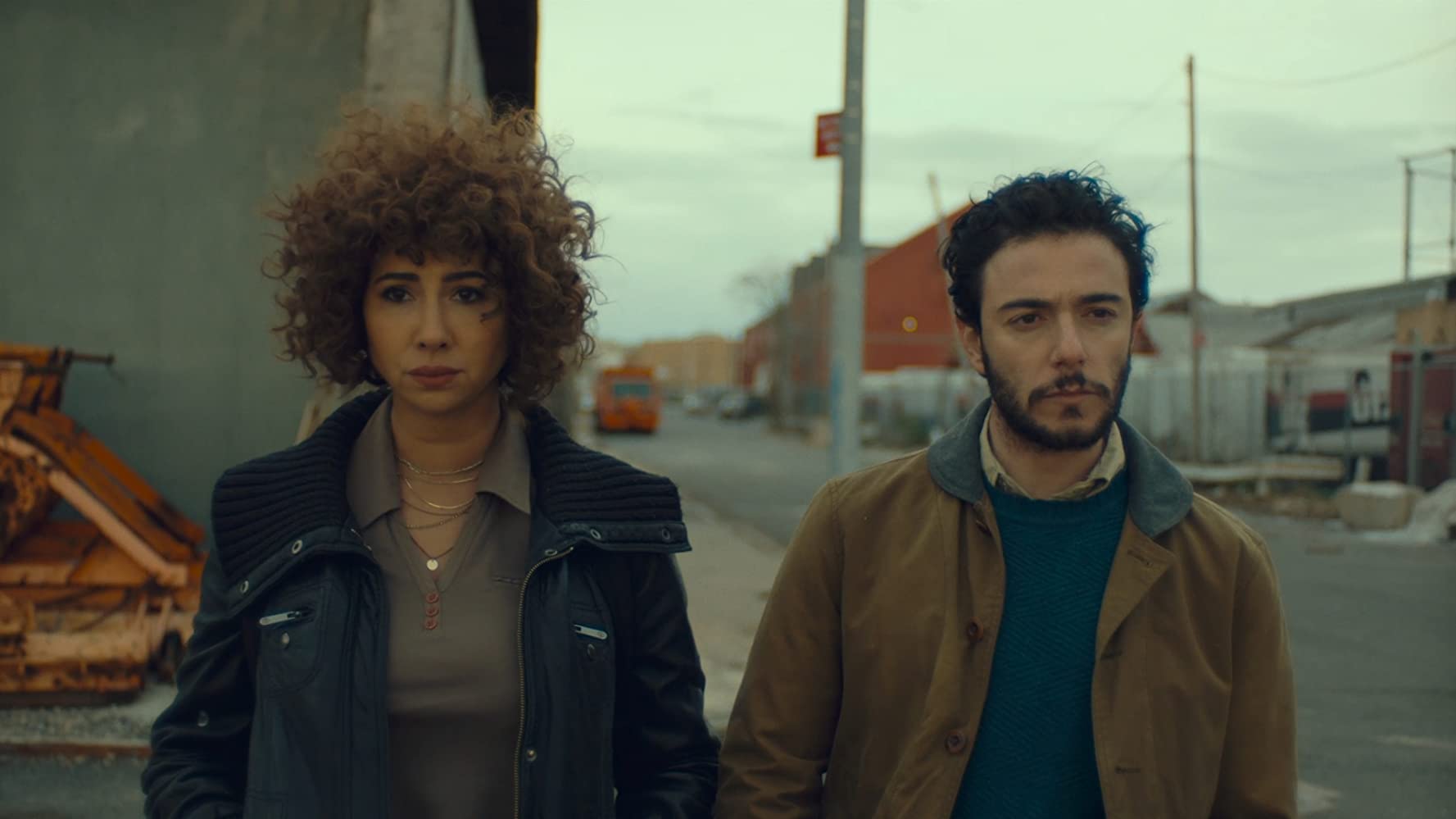
Jackie Cruz and Hadi Tabbal in a still shot from Rosa.
If you could define who you are as a filmmaker, what genre would you place yourself as?
I wish I had an answer to this. I feel like that is where I’m at now, being able to answer and define that. This is maybe my sixth directed film and if you look at my work, yes, it’s fiction but not always. It’s really about human moments and building the world around that. Ultimately, what moves me the most is diaspora; people living outside of a plan they had or the world they envisioned and having to survive. Most of the stories I’m drawn to are harsh realities we all face, trying to find a lightness or something redeeming about the brutality of human experience.
Any future projects we should keep an eye on?
Yes, I actually have several projects in the works. I’m co-creating another series with two other people and I have a feature film based on The Cup Reader about Arab women who don’t get married in time. I also have another feature film taking place in the Midwest that I’m developing now. I think what saved me during this time is collaborating with people I love & respect and being able to be creative. I hope to continue to do that.
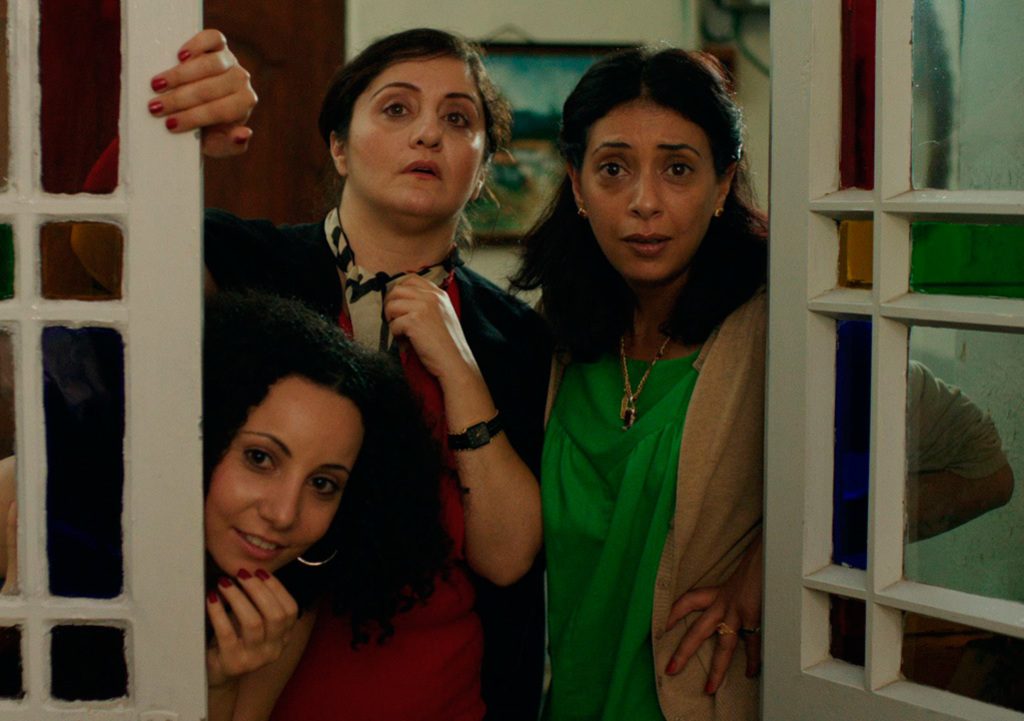
Still from the film The Cup Reader.
Rosa is unlike your other comedic films (e.g. The Cup Reader). Is there a signature you like to incorporate in your projects?
I still feel like I’m early in my body of work, but I do think that they are similar in that there’s a humanness I’m always trying to get across. Even with Rosa, I did not want to get into the crime of it or the gritty underground. I wanted to get in the human aspect of this man trying to bury his father. So for me, it’s really about the rawness of human experience and trying to find the best way to connect to the audience, whether it’s humor or another emotion. To create a world that allows you to be a part of it as its viewer.
With all that’s happening in the world, what has been the impact on your work as a filmmaker?
I’m really just going about it one day at a time and I’ll be happy if I get to do work. All that we have in the end is our stories. Film is one of those mediums that can tell a story and we’ve seen the need for that in these hard times. What types of stories will be told I can’t say, but I do think that the need for us to tell our stories [has only become] stronger at this point. I hope we continue to be able to do that and more doors continue to open for diverse voices to be heard.
Do you have any advice for budding filmmakers? Specifically, filmmakers coming from immigrant backgrounds or minority experiences?
I’ve worked as a teaching artist in New York for many years now. Working with students, often students of color, I think the biggest message I have for them is that your voice is important. Your own voice, your experience, what moves you – that’s the heart of it. Start from there.
Don’t worry about what other people are doing or saying. What’s true to you is really the most important aspect of filmmaking and so honor that and build from there. Trust that voice, especially if you’re coming from a community you don’t often see reflected. It’s up to us to create that, so you really have to trust yourself and your experiences.
Obviously since there’s a craft involved, there’s a lot to learn. But what I would want to keep pure for someone starting out is just to really stay true to what feels authentic to you. And you know in your body what feels authentic. You know what truth feels like. To be able to drown everything out and work from that place is the strongest asset you can have as a filmmaker.
To learn more of Suha Araj’s work, visit her website https://www.suhamaria.com/about
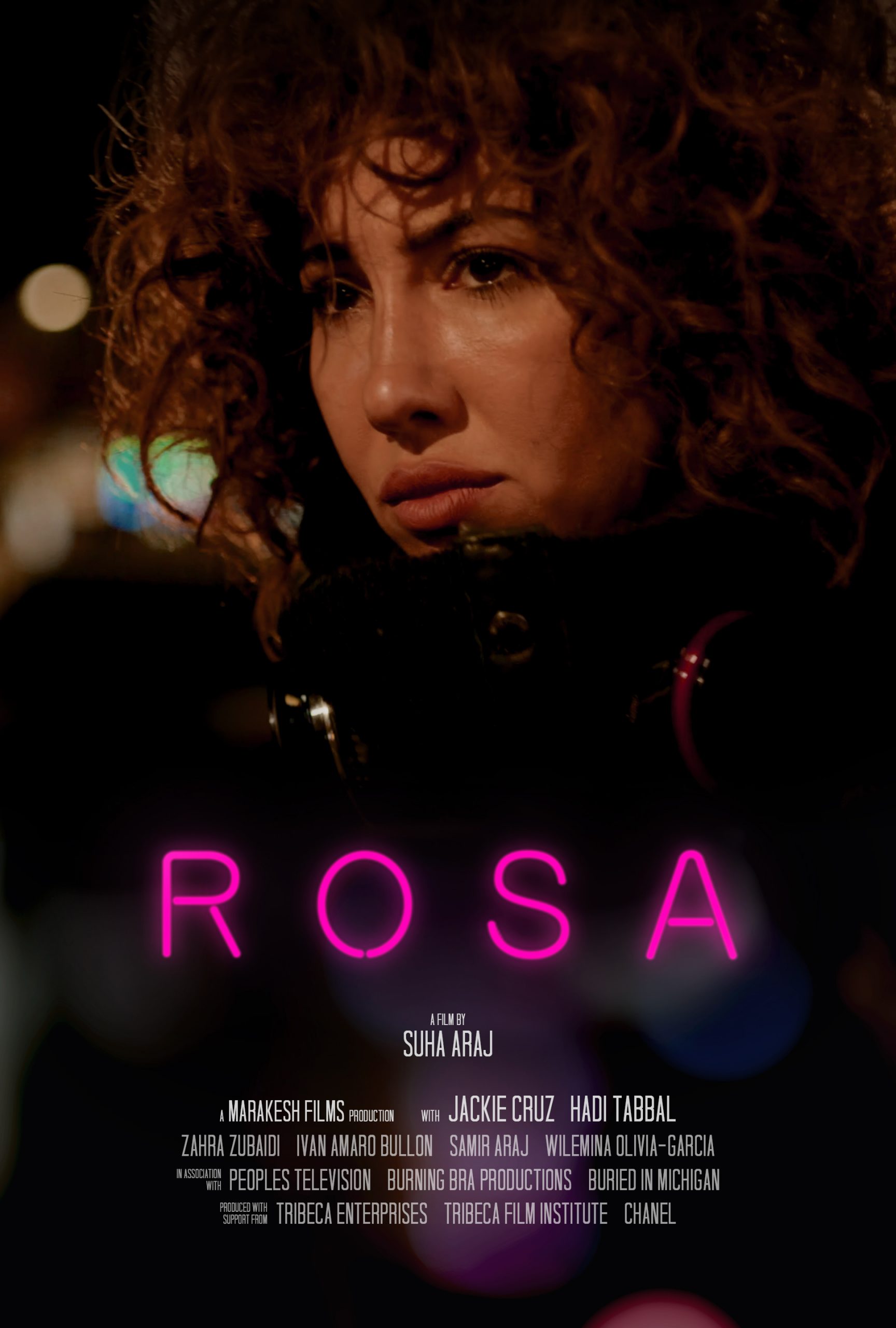
Poster for the film Rosa.

